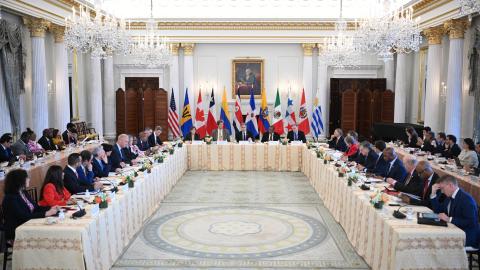The enthronement of Donald Trump and J.D. Vance at the Republican National Convention, the defenestration of Joe Biden and his anointing of Kamala Harris as the Democratic heir, the attempted assassination of Mr. Trump and a scandal over the Secret Service’s performance all have heads spinning at home and abroad. For Americans caught up in the presidential drama, the news was more about personalities and parties than foreign policy. But for foreign governments struggling to understand the direction of the world’s largest military and economic power, the news was all about uncertainty and risk.
By selecting Sen. Vance of Ohio, Mr. Trump doubled down on the populist, antiestablishment approach to foreign policy that shocks some and thrills others abroad. Mr. Vance is skeptical of aid to Ukraine, supports protectionist tariffs, and advocates a Jacksonian-inflected MAGA agenda.
Read the full article in the Wall Street Journal.
Enjoyed this article? Subscribe to Hudson’s newsletters to stay up to date with our latest content.


















